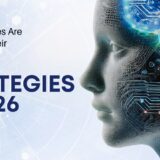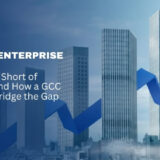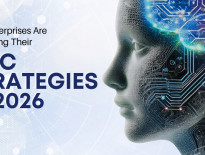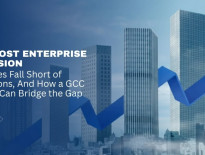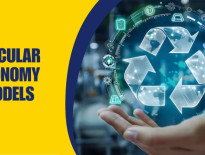
Global Capability Centers (GCC) are developing as strategic innovation engines from cost-centred delivery centers that shape the future workforce. Today there are more than 1,900 GCCs in India alone, providing an annual price of about 64–65 billion US dollars and employing about 1.9–2.0 million professionals – a base that is expected to expand rapidly by 2030 according to industry reports. These centers are crucibles where the talents of Generation Z meet generated AI (GenAI), which produces productivity and economic benefits for both original organisations and national economies.
The Generation Z workforce involves digital natives: they expect acute teaching, purpose-operated tasks, global contact and continuous skill renewal. GCC, or Global Delivery Centre, provides the same experience: the entire product lifecycle, border-par teams and intense skill development paths. Also, GenAI is providing a productivity limit whose industry analysis estimates between US $ 2.6 trillion and US $ 4.4 trillion annually, allowing GCCs to expand knowledge-related tasks and create high-value roles rather than only changing jobs. Its joint effect is not displacement but the role of role and creation of new functions.
Extension and Closeness of Talent – India’s GCC ecosystem already offers a wide range of engineers, data scientists and field experts, and as more multinational companies are establishing or expanding global capability centers in India, its expansion continues. Economic Benefits – GCCs provide lower operational cost skills than onshore centers, while products receive premium revenue currents through engineering, research and development and digital services; According to forecasts, by 2030 the Indian GCC market will reach US $100–105 billion. Rapid Innovation Cycle – Genai speeds up prototyping, automatically automates regular functions, and increases the process of decision-making in finance, customer operations and product teams within GCCs.
GCC leaders will have to manage prejudice, data governance and workforce carefully. Ethical AI structure, transparent model governance and targeted reconciliation – especially for data cures, accelerated engineering and AI regional roles are essential to consecrate the promise of GenAI into constant employment creation. Industry trackers also show a growing start-up ecosystem that is promoting the demand for AI skills, which is strengthening the need for structured talent pipelines within the GCC.
Gen Z’s learning agility will rapidly pursue GCC high-value services, advanced analysis and domain research and development, which produce major economic benefits for original firms and host economies. Estimates show that by 2030 the value of the GCC market may be almost double, while employment is expected to reach millions, which will create leadership roles and specific AI works in industries.
The future workforce will not be human or machine; it will be human with machines. The global capability center is located at the confluence of the ambition and generation AI capacity of generation Z, providing an economic and operational platform to restore the work. Organisations that invest in moral AI within their GCC, continuous learning ecosystems and purpose-based careers will achieve both talent and competitive advantages in the coming decade.
For enterprises and leaders designing the next generation of global capabiliity centers, the imperative should be clear: to create integrated generative AI roadmaps, organise Gen Z talent trips, and rule with morality to realise the complete economic and human ability of the GCC -run innovation.
A GDC refers to a single-minded offshore deployment, which provides proficient business, technology and operational services to corporate bodies on a global basis. BFSI, IT services, healthcare, telecom, retail, manufacturing, and other upcoming technologies, including AI and blockchain. They do not only target cost savings but now aim at innovation, automation, R&D, digital transformation, and high-value consulting. They design and create cloud, artificial intelligence, analytics, cloud security, and process automation. A large supply of STEM graduates, multilingual workers and niche skills in AI, ML, cloud, and analytics. Aditi, with a strong background in forensic science and biotechnology, brings an innovative scientific perspective to her work. Her expertise spans research, analytics, and strategic advisory in consulting and GCC environments. She has published numerous research papers and articles. A versatile writer in both technical and creative domains, Aditi excels at translating complex subjects into compelling insights. Which she aligns seamlessly with consulting, advisory domain, and GCC operations. Her ability to bridge science, business, and storytelling positions her as a strategic thinker who can drive data-informed decision-making.
Generation-z Features Generation AI Capabilities.
Why GCCs Are In Unique Positions To build future workforce
Practical strategies GCCs
Strategy
What it delivers
Impact on Gen Z & GenAI adoption
Continuous micro-learning platforms
Just-in-time skill upgrades, certificates
Keeps Gen Z engaged; AI-personalised learning
Innovation pods & labs
Rapid prototyping & cross-functional experiments
Hands-on GenAI exposure; entrepreneurial culture
AI-augmented workflows
Automation and co-pilot tools for knowledge work
Higher productivity; role elevation (ethics, prompt engineering)
Flexible & global career paths
Hybrid, rotational programmes across geographies
Attracts purpose-driven Gen Z; builds leadership pipeline
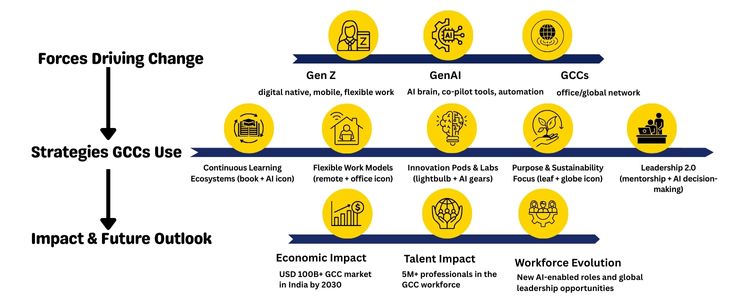
Risk Balance: Morality, Reconciliation, Governance
A Future-Orientated Snapshot (2025 → 2030)
Conclusion
frequently asked questions (FAQs)

Aditi
Hey, like this? Why not share it with a buddy?
Related Posts
Recent Blog / Post
- Pharma GCC Setup Services in India: Strategic Considerations for CXOs January 9, 2026
- Why Enterprises Are Rethinking Their GCC Strategies in 2026 January 8, 2026
- Why Most Enterprise Expansion Strategies Fall Short of Projections, And How a GCC Enabler Can Bridge the Gap January 7, 2026
- India’s GCC Ecosystem: Why the World’s Biggest Companies Are Betting Their Future on it January 3, 2026
- Healthcare GCCs in India: Where the World’s Pharmaceutical Innovation Actually Happens January 2, 2026
- Circular Economy Models and Their Relevance to Manufacturing GCCs December 30, 2025
- GCCs in Agritech: Digitizing Global Food Security December 29, 2025
- Renewable Energy GCCs: Accelerating Global Green-Tech Development December 29, 2025
- Cyber Resilience 2030: Multi-Layer Security Architecture for GCCs December 26, 2025
- Building an Integrated Risk Management Framework for Multi-Region GCCs December 26, 2025
- The Ethics of Automation: How GCCs Maintain Human Oversight in AI Workflows December 25, 2025
- Future of HR in GCCs: Data-Led, Skills-Based, and GenAI-Driven December 25, 2025
- The Proposal to Standardize India’s GCCs for Unshakeable Global Leadership December 24, 2025
- Global Capability Centers: A Strategic Growth Model for B2B Enterprises December 24, 2025
- AI Ethics & Compliance Mandates for GCC Operations in 2025 December 23, 2025


